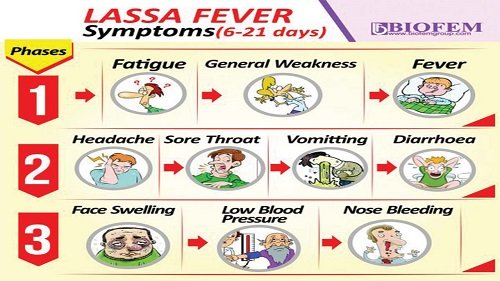Health Essentials
Lassa fever – Another call to improve sanitation

Nature has a way of consistently reminding us to keep ourselves and our surroundings clean and when we refuse to conform we get scares from conditions such as Ebola, Swine Flu, Meningitis and recently Lassa Fever. It may not be at your doorstep yet but “when a neighbour’s beard catches fire you had better get water ready …” This time by the close of day, 26th February 2023, 14 people had proven Lassa Fever in Ghana and one of them had died.
How I wish we will just follow the basics of personal and environmental hygiene all the time.
What is Lassa Fever
and how does it present?
Lassa Fever is caused by a virus that often gets to humans through contact with food and household items that have been contaminated with the urine or faeces of a rat.
It is not known to be spread through casual contact such as shaking hands, hugging or sitting close to an infected person.
Unlike the quick and devastating Ebola Virus disease, Lassa Fever starts mildly and gradually and initial symptoms that appear 6-21 days after contact include:
• Fever, Fatigue
• Sore throat
• Headaches and Weakness
• Majority of people (80%) show no symptoms
These may progress to:
• Nausea and Vomiting
• Facial swelling
• Cough, Chest pain
• Abdominal pain
• Bleeding from several orifices, bloody diarrhoea
• Organ failure and death
Risk Factors
Simply living in or travelling to an area with an outbreak of Lassa Fever will increase your risk of becoming infected with the virus if you do not take the necessary precautions. Several other factors can increase your risk even more, including:
• Working with the sick
• Slaughtering infected rats
• Sharing needles to use intravenous drugs
• Having unprotected sex
• Working in rat-infested buildings or area outdoors infested with rats.
Prevention
We should practise personal and environmental hygiene every day not wait for a disease alert before we scramble for a way; we may not always be lucky.
You may also have noticed that many of these viral illnesses are copycats especially at the beginning. Just when you think you have a “serious common cold” so all will be well, it hits hard sending you to the land of your ancestors. In short seek medical care promptly even when you think it’s “nothing serious.”
• Keep food covered and stored in rodent-proof containers.
• Store trash/rubbish in rat-proof containers, and clean the containers often.
• Dispose of garbage/rubbish on a regular basis.
• Make sure doors and windows have tightfitting screens.
• Place firewood or other cut tree branches and stacks of stones or blocks and other materials at least 100 feet from your house.
• Mow your grass closely and keep shrubs trimmed to within 100 feet from your house.
• Avoid hunting rats
• Wash hands thoroughly and regularly
• Cook all foods thoroughly
• You may have an added advantage if you have a cat that is not scared of rats
• Foods such as salads that may have been prepared in suspicious kitchens can’t be warmed and should be avoided.
• Think twice when patronising food by the roadside especially when cold.
Diagnosing Lassa Fever
We will leave that to your doctor. Just seek help when you do not feel well.
Management of Lassa Fever
In all cases it is important that you are isolated (kept away from people with other diseases) and the professionals treating you will wear protective clothing.
Final Words
Recovery is usually 8-10 days after onset of symptoms. Lassa Fever virus is excreted in urine 3-9 weeks after onset of symptoms and may continue to be found in semen three (3) months after onset of symptoms.
Keeping our homes and cities clean requires our individual efforts in addition to people tasked with cleaning common areas doing their work. What is the point if you clear all the rubbish in your home but the team required to pick up and dispose of the rubbish is not bothered? Look at the heaps of rubbish all over the place including markets where we buy food. We are simply living on a Time Bomb but it’s never too late to turn things around. Start today and keep at it.
AS ALWAYS LAUGH OFTEN, ENSURE HYGIENE, WALK AND PRAY EVERYDAY AND REMEMBER IT’S A PRICELESS GIFT TO KNOW YOUR NUMBERS (blood sugar, blood pressure, blood cholesterol, BMI)
Dr. Kojo Cobba Essel
Health Essentials Ltd/Mobissel (www.healthessentialsgh.com)
*Dr. Essel is a medical doctor, holds an MBA and is ISSA certified in exercise therapy, fitness nutrition and corrective exercise. He is the author of the award-winning book, ‘Unravelling The Essentials of Health & Wealth.’
Thought for the week – “One healthy choice is ALWAYS followed by another. Make a healthy choice today!”
References:
• WHO on Lassa Fever
• Mayoclini.org – Viral Haemorrhagic Fevers
By Dr. Kojo Cobba Essel